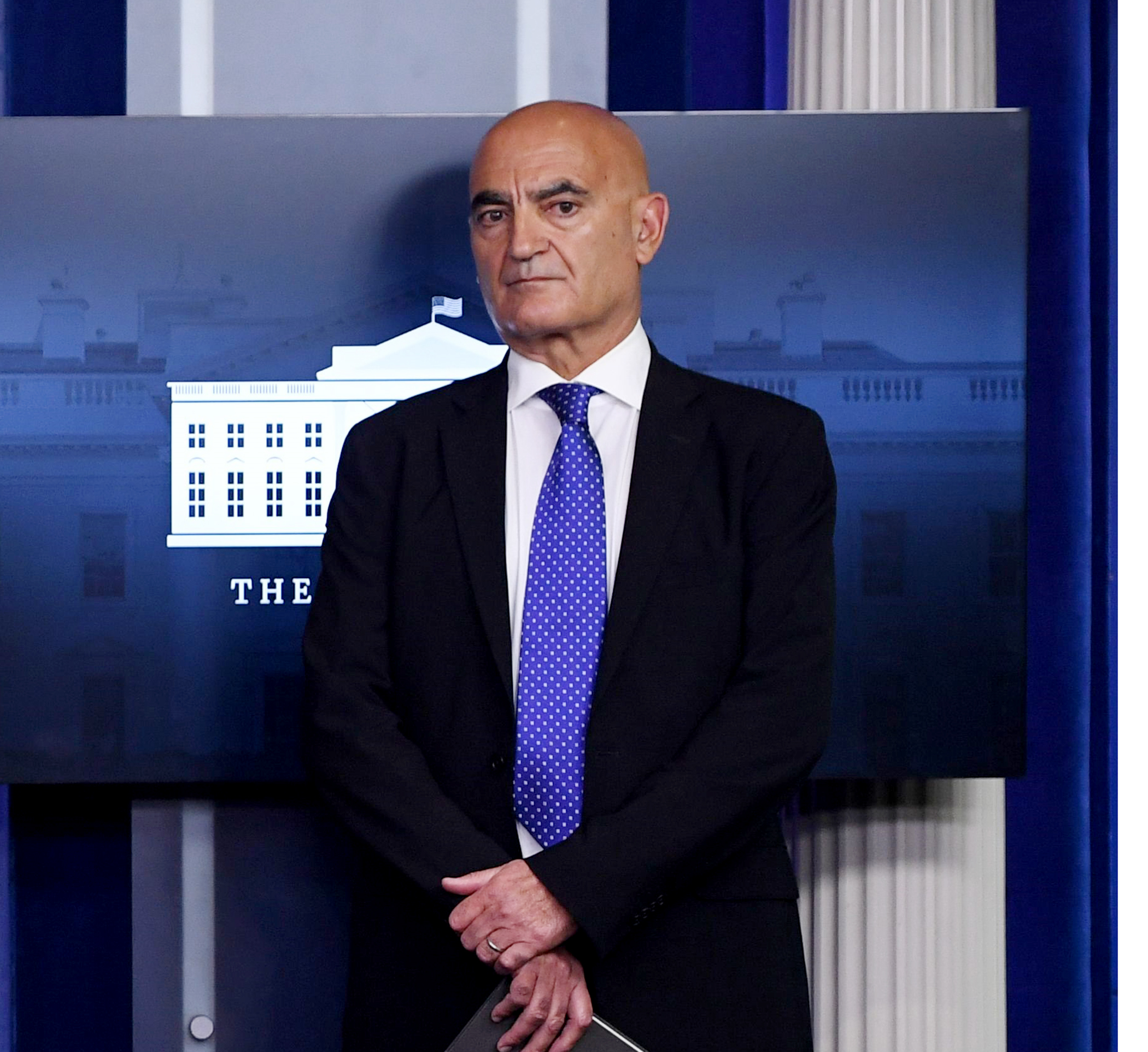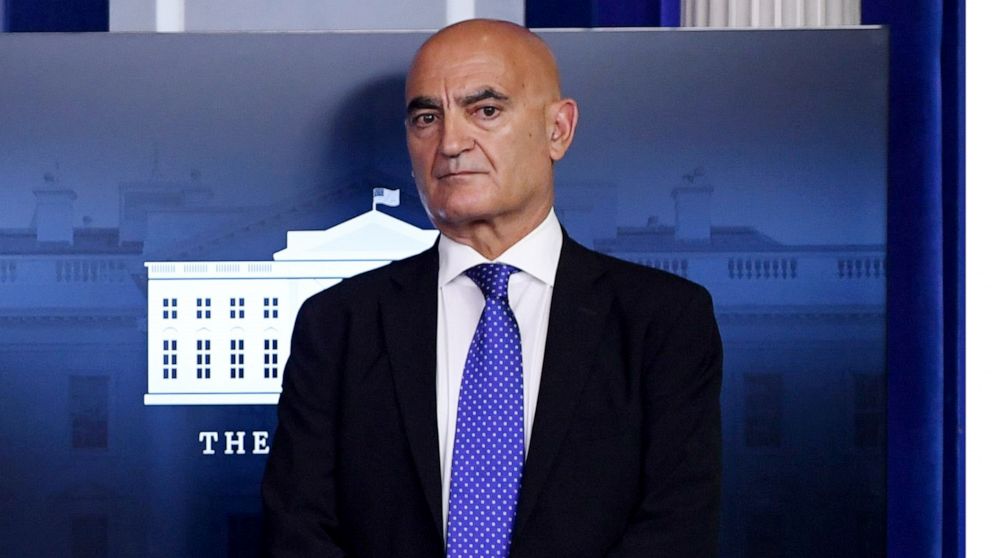Operation Warp Speed adviser concerned about vaccine skepticism 'exacerbated' by 'political context'
The chief science adviser to the Trump administration's coronavirus vaccine development program expressed worry Sunday over continued public skepticism about immunization safety, blaming politics, in part, for some Americans' reluctance to receive a shot.
"I'm very, very concerned about the hesitancy (to receive a vaccine) as it exists and I think it's very unfortunate because this has been exacerbated by the political context under which we have worked very hard," Dr. Moncef Slaoui, Operation Warp Speed's chief science adviser said on ABC's "This Week."
Slaoui's comments come at a time when over 40% of Americans indicated they are unwilling to receive a Food and Drug Administration-authorized vaccine to prevent COVID-19, according to a recent Gallup poll. Simultaneously, the stand-off over President Donald Trump's refusal to concede the election to President-elect Joe Biden shrouds the continued vaccine development operation in politics.
On "This Week," Slaoui, who has pledged to remain apolitical while advising the Warp Speed project, said that he is "concerned with anything that could derail the process." He then confirmed he has not yet had contact with Biden's team.
"Wouldn't that help ensure a seamless transition from one administration to another?" asked ABC News Chief Anchor George Stephanopoulos.
"We're here to serve. If people want to contact us, of course we will be available," Slaoui said, while noting that "the rules are such that confidential information needs to be kept with the federal employees."
"But otherwise, of course, I'd be happy to be contacted and explain what we're doing, as I'm doing it now, to all the public," he continued.

Two companies, Moderna and Pfizer, reported early data last week indicating that their respective vaccines were over 90% effective without serious side effects -- results that White House Coronavirus Task Force member Dr. Anthony Fauci labeled "extraordinary" at a press conference Thursday.
Slaoui echoed that characterization Sunday, drawing on decades of experience in vaccine research as he described the work of the pharmaceutical companies at the forefront of the breakthroughs.
"The vaccines have been developed as thoroughly and as scientifically as ever," he said. "I've been doing this for more than 30 years, this vaccine development is not different than any other, except that we have gone at an incredibly fast speed with incredible resources."
News of the early data arrived as the United States continues to experience a nationwide surge in coronavirus cases. In the past seven days, well over 1 million Americans were diagnosed with COVID-19 and more than 10,000 have died from the virus -- the largest number of deaths in one week since late April, according to the COVID Tracking Project. This week, the nation's total death toll from the virus since February eclipsed 250,000.
On Friday, Pfizer submitted an emergency use application for its vaccine to the Food and Drug Administration. The FDA is scheduled to discuss potential authorization on Dec. 10. Slaoui said Sunday that Moderna is planning to file its application by the end of the month and the FDA will evaluate it on Dec. 17.
Trump has criticized Pfizer -- which, unlike Moderna, did not receive federal funding for its research through Operation Warp Speed but instead committed, over the summer, to sell the government 100 million doeses for $2 billion -- claiming multiple times, without evidence, that it delayed its vaccine data until after the election in retaliation for Trump's efforts to lower drug prices.
"Do you have any evidence of that?" Stephanopoulos asked Slaoui on Sunday.
"I don't think any specific action has taken place to delay the vaccine," the doctor said.
Slaoui added that Pfizer's timeline was, in part, dictated by a "60-day follow up after completion of immunization" to understand "the short-term and the predictable, long-term safety of the vaccine," calling it "an appropriate decision."
Both Slaoui and Gen. Gustave Perna, Operation Warp Speed's chief operating officer, have said that immunizations could begin as soon as 24 hours after approval is granted. Health care workers and individuals considered at-risk, due to age or pre-existing conditions, are likely to be the first to receive inoculations. Slaoui told ABC News last month, prior to the Moderna and Pfizer news, that the government was planning to immunize most Americans by June 2021. He urged Americans on Sunday not to hesitate.
"I feel very comfortable that these vaccines are safe. I'd be happy to take the vaccine, I'll be happy to have my children out or my parents have the vaccine," he said. "And we will be totally transparent with every single bit of data and information that we know about the vaccine for everybody to listen."
"The key, frankly, is, please don't make up your mind before you listen to all the information that the FDA, and that the CDC, and that all independent experts in the country will be able to look into and advise you," Slaoui added.




